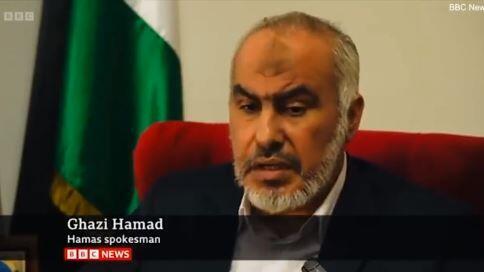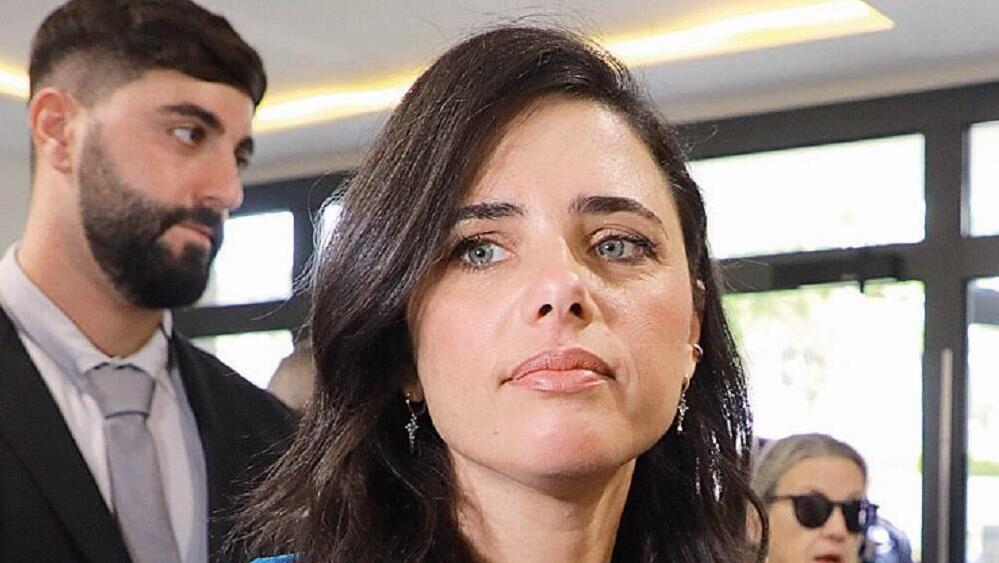Getting your Trinity Audio player ready...
Ghazi Hamad storming out when pressed on carnage
(Video: BBC)
In what seems like the slightest of signs that the BBC has decided to veer away from its near-constant anti-Israeli narrative, it conducted an interview with Hamas senior official Ghazi Hamad, in which he was pressed on how Hamas justifies the indiscriminate murder of Israeli civilians, causing him to storm out of the interview midway through.
Read more:
During an interview with BBC's Middle East correspondent Hugo Bachega, Ghazi Hamad, the deputy foreign minister of Hamas in Gaza, faced tough questions about the brutal killings of over 1,400 Israelis. In the interview, Hamad implied that there were no orders given to harm civilians when Hamas launched its invasion of Israel on October 7. This invasion involved terrorists paragliding into the desert, surrounding the Nova music festival, and tragically taking the lives of 260 festivalgoers as they desperately tried to flee the carnage.
As Bachega pressed the Hamas official on how it's justifiable to murder families in their homes as they're sleeping, Hamad decided he had enough, removed the mic and stormed out, saying "I want to stop this interview."
Subsequently to Hamad's avoiding answering the question and his abrupt exit, former Israeli Justice Minister Ayelet Shaked appeared on BBC, and the anchor asked her if she managed to catch any of the Hamad interview. "I heard and I almost physically vomited, actually. You know that those monsters had cameras on the helmets of the murderers. We have videos of all the atrocities that they committed. Everything is recorded. Some of your correspondents saw the videos," she said.
Shaked went on to describe the horrors in vivid detail. "And I'll just give you an example. They entered the home of a happy family. A father, mother and two little babies... kids. They handcuffed the mother, father and the kids. They tortured the mother and the father in front of the kids. They took out their eyes and did horrible things and then they murdered the whole family. They decapitated children. In one house, they murdered a pregnant woman, they split open her belly and they stabbed the baby. They're monsters. They're worse than ISIS and they should be eliminated."
Over the years, Israel has consistently accused the British Public Broadcasting Corporation of displaying a clear pro-Palestinian bias in its coverage. During the war, Israel was particularly incensed when the BBC referred to Hamas as "militants" instead of terrorists. However, following the criticism, the BBC issued an apology and stated that moving forward it would refer to the organization as a "terrorist organization outlawed by the British government and other entities." Additionally, the BBC network also apologized for its coverage of the hospital explosion in Gaza and acknowledged that adopting the Hamas narrative attributing the explosion to an Israeli attack was a mistake.
One incident that ramped up the pressure on BBC was a recent interview conducted with former Prime Minister Naftali Bennett, which was a highly contentious one. The interviewer, Laura Kuenssberg, pressed Bennett on Israel's supposedly unfair seizure of the enclave, at which point Bennett turned up the heat. "I understand that BBC has taken the Gazan side because all your questions are only about the Gazan civilians..."
Kuenssberg denied this, but Bennett kept on pressing. "From the beginning of this interview, you've asked me about them (Palestinian civilians in Gaza)... We're here protecting you. We don't need your protection. If you think there's a balance here between two equal sides, then you are lacking moral clarity and BBC, I must say, is lacking moral clarity," he said.







